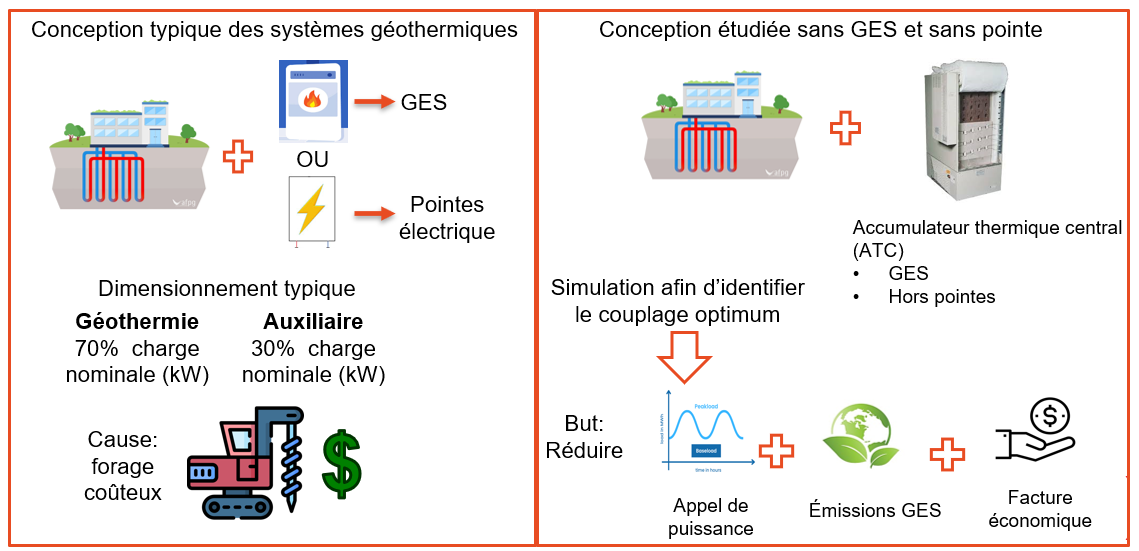Study of the coupling of electric thermal storage systems with geothermal energy

Mitacs Grant Supplement - 2025
Description
The decarbonization of building heating in Quebec is taking place in a context where Hydro-Québec is facing growing challenges in managing winter demand. Geothermal energy is a sustainable, resilient, and effective solution for reducing energy consumption, but its installation cost—mainly related to drilling—generally requires the addition of an auxiliary heating system. When this auxiliary system is electric, it contributes to winter peak demand; when it is fuel-based, it generates GHG emissions.
The use of a central heating electric thermal storage (ETS) system as an auxiliary would make it possible to circumvent these two limitations. The CTSS consumes electricity during off-peak periods to store heat, then redistributes it during periods of high demand, thereby reducing pressure on the grid and emissions associated with heating.
However, the combination of ETS and geothermal energy has never been systematically documented or analyzed in literature or practice. This project aims to fill this gap by evaluating its potential, particularly in school buildings.
Objectives
- Evaluate the effect of ETS–geothermal coupling on system design and installation costs and on heating energy costs compared to an electric or fuel-based auxiliary system.
- Compare the GHG emissions of the geothermal + ETS system with those of a system using auxiliary fossil fuel heating.
- Analyze the effect of coupling on winter peak power consumption, compared to a fully electric auxiliary system.
Methodology
- Inventory and documentation of seven school buildings already equipped with geothermal-ETS coupling at partner sites (CSS des Trois-Lacs, CSS des Mille-Îles).
- Energy modeling of a building archetype in EnergyPlus/OpenStudio.
- Assessment of economic, environmental, and energy indicators.
- Simulation of scenarios (climate variations, well capacities, building sizes, ETS charging strategies, etc.).
Expected benefits
- First documented overview of the coupling of CTSS and geothermal energy in Quebec.
- Identification of the optimal conditions under which this solution becomes advantageous.
- Production of practical recommendations for designers and managers of school infrastructure.
- Contribution to the decarbonization of school buildings without increasing peak electricity demand.
Don’t just coexist with climate change.
